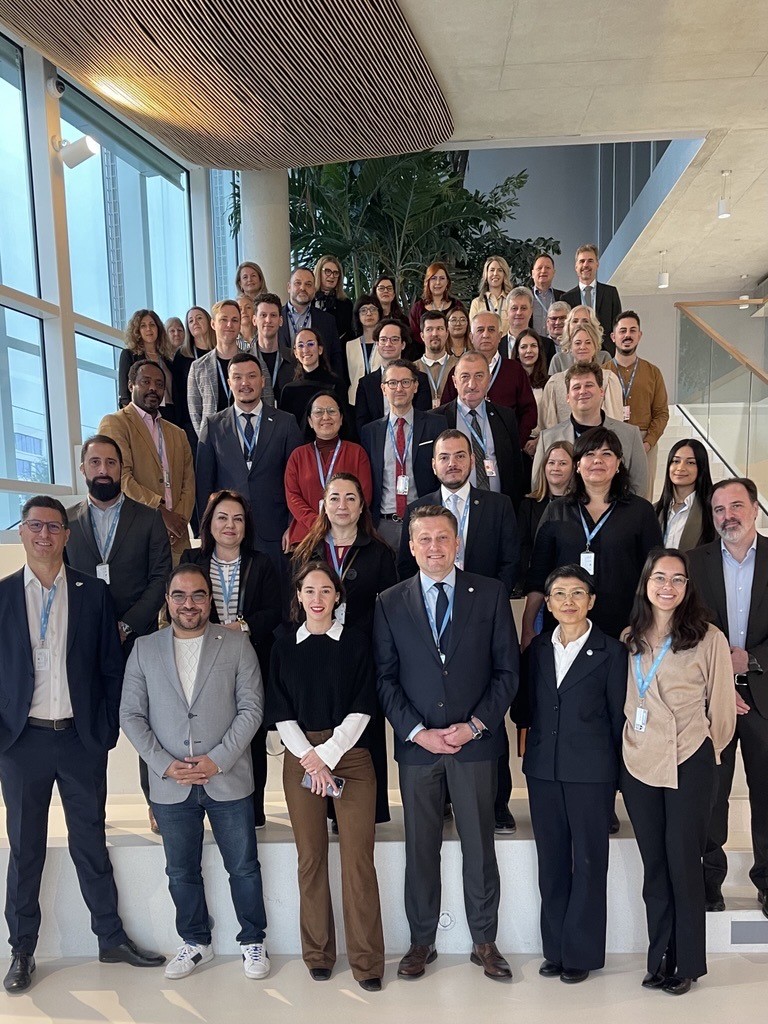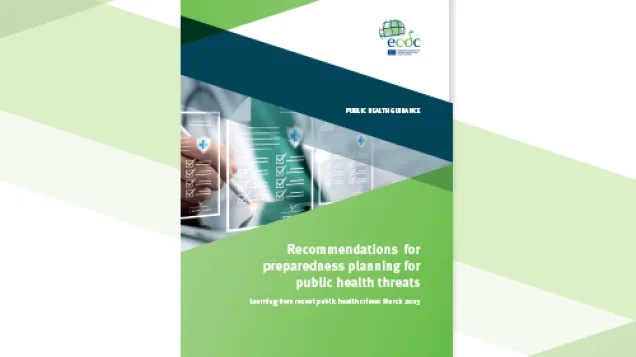ECDC and WHO/Europe conclude EOC-NET European Regional Forum Annual Meeting in Lyon, France at the WHO Academy
 The three-day meeting brought together Emergency Operations Centre (EOC) professionals from EU/EEA Member States and countries across the WHO European Region to strengthen coordination, governance, and operational preparedness for public health emergencies.
The three-day meeting brought together Emergency Operations Centre (EOC) professionals from EU/EEA Member States and countries across the WHO European Region to strengthen coordination, governance, and operational preparedness for public health emergencies.
The Forum focused on the continued development of the EOC-NET community of practice and provided a platform for participating countries to exchange experiences and discuss new frameworks, legislative updates, and approaches for improving collaboration with the wider health emergency workforce. Sessions also explored ways to enhance leadership, accountability and cross-border cooperation between EOCs.
Breakout discussions allowed participants to examine future governance models, access training and simulation resources, and mechanisms for more effective knowledge sharing within the network. Country representatives shared case studies highlighting practical lessons in areas such as governance, workforce organisation and the use of digital tools to support EOC operations.
On the final day, a hands-on simulation exercise enabled participants to apply insights from the meeting and to practice key coordination and decision-making processes in a realistic operational context.
In closing the meeting, ECDC and WHO/Europe representatives emphasised the importance of sustained regional collaboration to strengthen preparedness and response.
ECDC’s EOC Operational Manager, Hakim Khenniche, noted: ‘Strengthening Emergency Operations Centres is essential for effective public health crisis management. By continuing to invest in this community of practice, we can significantly enhance preparedness and ensure that our EOCs are equipped to respond rapidly and collaboratively to any future health emergency.’
Highlighting the importance of cross-country coordination, Mariam Pashalishvili, Chief Specialist at Public Health Emergency Preparedness and Response Division, NCDC Georgia, stated: ‘Strong networks improve decisions, and better decisions protect people. The EOC-NET European Regional Forum helps us listen, learn, and coordinate across countries. Preparedness grows through steady cooperation. Through this network, Georgia gains practical experience, technical guidance, and stronger partnerships, which support faster decision-making and better protection of our population during emergencies’.
Oleg Storozhenko, WHO/Europe’s Emergency Operations Team Lead, emphasised: ‘This first meeting marks an important milestone in operationalising National Health Emergency Operations Centres as the main coordination tool for all types of health emergencies. The recommendations emerging from participants will directly inform the development of the Global EOC-NET 2030 Strategy.’
And Paul Sutton, UKHSA, noted: “Over three days, colleagues from across the Europe Region came together to strengthen our Emergency Operations Centres. Turning shared experience into shared capability, we are building a more coordinated, resilient and better-prepared region.”
Rui Pedro Leitão, Head of Emergency Preparedness and Response, CESP/DGS Portugal, added: “Connecting with EOCs from across Europe and aligning on shared priorities was invaluable. This Forum showed the real benefit of exchanging experiences, strengthening collaboration and reinforcing our European community of practice. A well-organised event and a great opportunity to build together for the future.”
Outputs from the Forum will support ongoing work by ECDC and WHO/Europe to enhance EOC capacities, strengthen preparedness, and facilitate continued cooperation across the EU/EEA and the wider WHO European Region.



